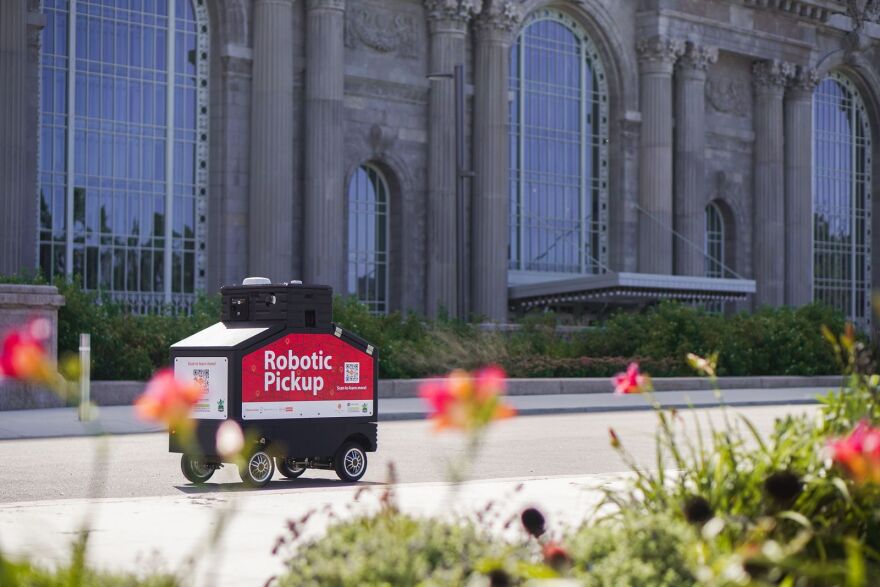Robots roaming the streets of Detroit are just one of many ways the Michigan Department of Environment, Great Lakes and Energy (EGLE) is working toward reducing food waste.
With the goal of cutting food waste by 50% from 2005 levels by 2030, EGLE has been helping to fund NextCycle Michigan. This program gives grant funding and advice to small companies in Michigan looking to reduce food waste.
One of these start-ups is Penny Pickup. With robot food delivery vehicles becoming more popular, the company Orange Sparkle Ball decided to launch Penny Pickup as a pickup service, instead of delivery. Their focus is to remove trash and unwanted items, primarily food waste.
“I think a lot of people really do have good intentions when it comes to being responsible with the things that they're throwing away,” Hannah Ranieri, an innovation strategist for Orange Sparkle Ball, said. “if we can lower the barrier to entry for them to make responsible decisions when it comes to disposal, then they will make that choice.”
Penny Pickup recently launched its first restaurant pickup after receiving grant funding from EGLE. A robot with a bucket to collect food waste was sent to San Morello, a restaurant in downtown Detroit. The plan is for the restaurant to fill the bucket with food waste, then the robot will come back to pick it up and take the waste to the Urban Tech Exchange building. There, the food scraps are turned into coasters that are brought back to the restaurant to use.

“Things have been going really well,” Ranieri said. “We're really excited, and we plan to do two additional pilots with two additional restaurants.”
Creating upcycling systems where food waste can be reused is one of EGLE’s priorities behind NextCycle Michigan.
“One of the big goals is contributing to that circular economy,” Aubree Carlisle, a food waste specialist at EGLE, said. “We're working to find the best and highest use for all materials that can still be utilized. Which means keeping those items out of the landfill and finding their best use.”
According to the Environmental Protection Agency, food waste and organic matter are among the leading causes of methane emissions through landfills. Carlisle said this methane accounts for eight percent of the world's greenhouse gas emissions.
“The impact of food in our landfills, creating that methane and creating those emissions, is contributing to global climate change,” she said.
One organization that went through the NextCycle program was Metro Food Rescue. This organization was created to bring unused food to people who need it most.
According to the U.S. Department of Agriculture, 30-40% of the food supply is thrown away. Chad Techner, the founder and CEO of Metro Food Rescue, said when he heard this statistic, knowing that one in every five children in the U.S. goes hungry, “I knew I needed to be a part of the solution.”

“Everyone knows there's way too much food waste out there. Everyone knows that there are hungry people out there. Most people just don't know what to do about it,” he said.
His company uses trucks in the metro Detroit area to collect unused food from large manufacturers such as bread warehouses, grocery stores and farmers markets and brings it to local food pantries and soup kitchens.
Techner said that often these manufacturers don’t want to throw away their unused food, but they usually don’t have any other choice.
“Our job is to make it easy to figure out where the gaps are and when we need to show up to recover the food,” he said. “All the food we rescue goes out the same day and is often on tables that night.”
Ranieri said creating easy ways for people to dispose of their food waste is the best solution to help the environment.
“Sometimes it's really hard to choose doing the responsible thing versus doing the convenient thing,” she said. “We're trying to amplify the convenience element of the solution and make it easier for people to dispose of their waste in the best possible way.”






